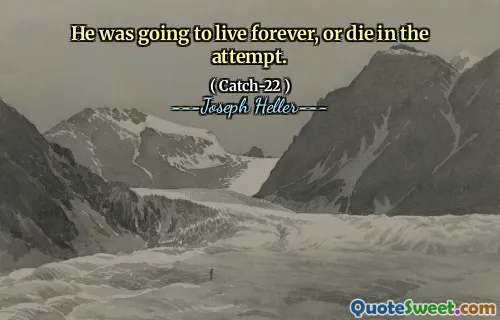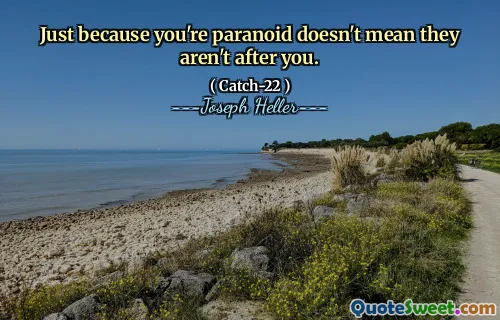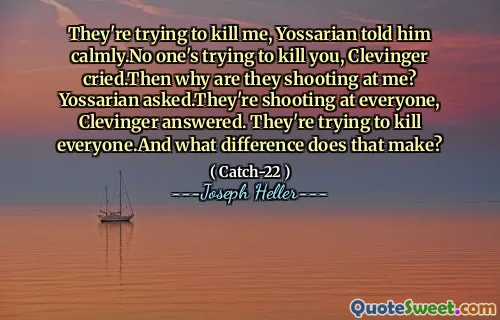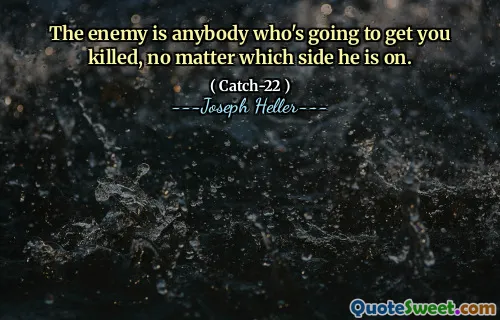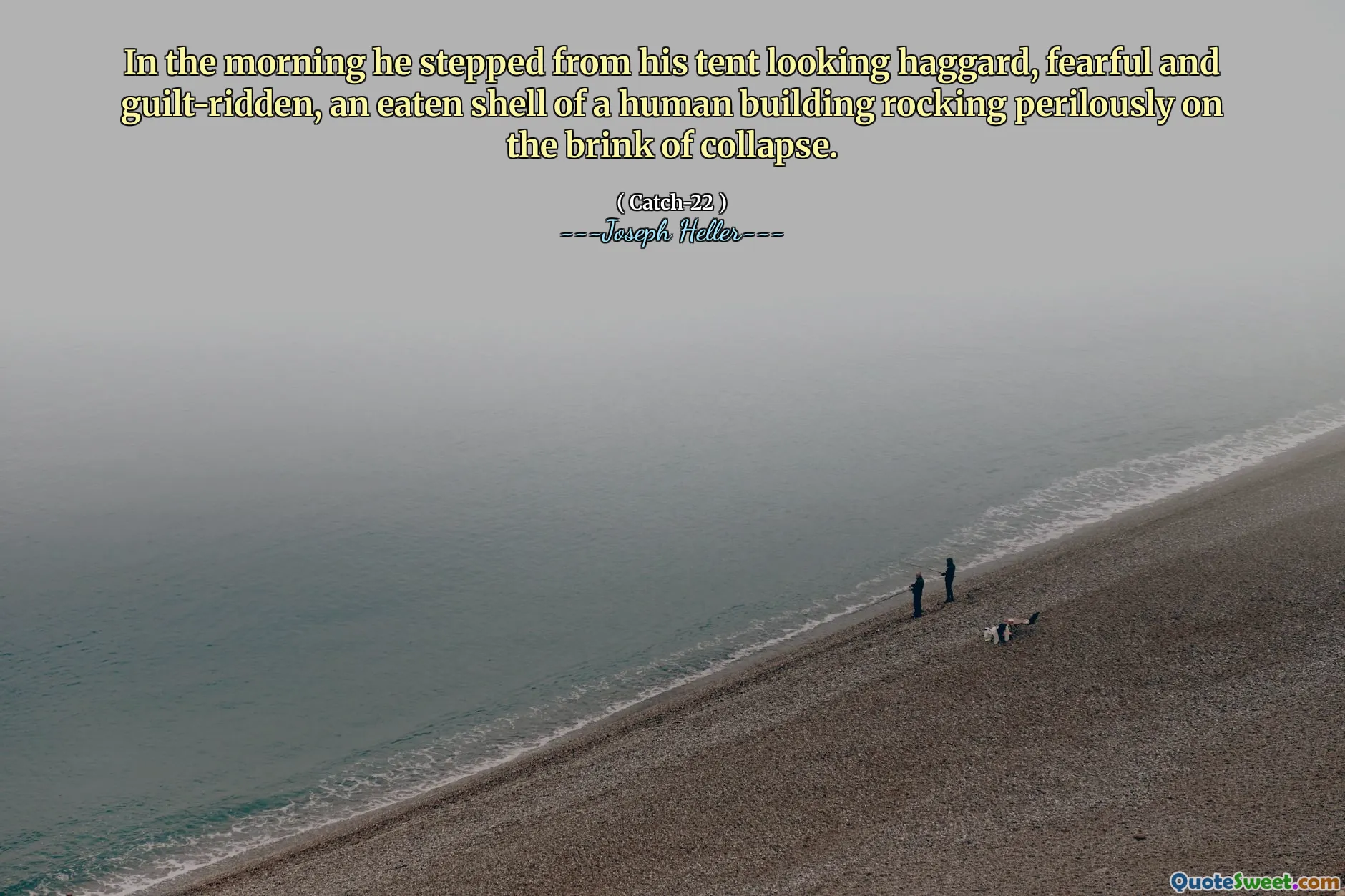
In the morning he stepped from his tent looking haggard, fearful and guilt-ridden, an eaten shell of a human building rocking perilously on the brink of collapse.
In the morning, the character emerges from his tent, appearing worn and distressed. His demeanor reflects a deep sense of anxiety and remorse, suggesting he is struggling with overwhelming emotions. This portrayal emphasizes his fragile mental state, as he resembles a person who is on the verge of breaking down. The description paints a vivid picture of someone grappling with the heavy burdens of guilt and fear.
The imagery of an "eaten shell of a human" further highlights the toll that external pressures have on him. The phrase suggests that he is a mere shadow of his former self, with his resilience significantly diminished. The scene captures the essence of a person facing internal turmoil, embodying the broader themes of struggle and existential crisis evident in Joseph Heller's "Catch-22".
